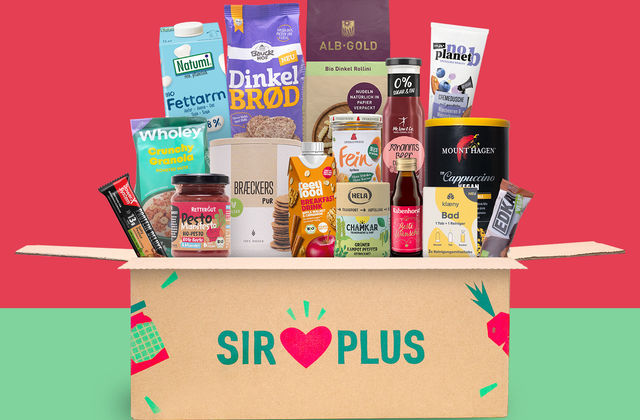What is it? In September 2020, Boots and its No7 brand introduced a take-back scheme in 50 Boots stores where customers can bring empty beauty, health, wellness, and dental products, from any brand, that cannot be recycled at home (Boots, 2021a). Boots collects the materials and these can be converted into Stormboard, a ‘mechanically strong, light and versatile board’, which can be used for purposes such as construction site hoarding or fire retardants (Storm Board LLP, 2021). These boards are made of recycled materials which can be recycled again (Storm Board LLP, 2021). Stormboard was acquired by MYGroup and it now operates as part of their Reworked business (Boots, 2021b). Metrisk have developed the Scan2Recycle technology, which constitutes the technology element of the scheme (scanning the items deposited and dispensing the rewards) (Boots, 2021b). Also this enables data collections and tracking the types of items collected and the brands (Boots, 2021b).
Why is this important? Worldwide, we produce about 300 million tons of plastic annually (NRDC, 2021) and in Europe alone, packaging represents 36% of municipal solid waste (Zero Waste Europe, 2020). Therefore, plastic waste recycling and repurposing can contribute to waste reduction (NRDC, 2021).
Main resource strategies:
- Closing resource loops through aiming to find a recycling and repurposing route for difficult-to-recycle plastic packaging
Business model aspects:
- Value Proposition: empowering customers to recycle more and make this option easily available. Recycling is free and customer rewards points are available which could be used for future purchases. The customer needs to deposit 5 qualifying items and will receive 250 Advantage Card (customer reward card) points if they spend £10 (Boots, 2021b).
- Value Creation & Delivery: Boots supported OPRL (On-Pack Recycling Label) to develop a take-back protocol which was independently audited (Boots, 2021b). Collection points are said to be accessible to at least 75% of the UK population and are clearly sign-posted (Boots, 2021a). The take-back scheme is technology enabled (using Scan2Recycle technology), which allows the company to control the types of items that are accepted via the scheme (Boots, 2021a). The scheme is intended to complement curb-side recycling and focuses on those materials which cannot be recycled using these conventional routes.
- Value Capture: The recycled material is used as an input to a new product: Stormboard. In addition, the rewards points may encourage customers to return to the stores.
Business model experimentation practices:
The scheme started off with an initial 50-stores trial before scaling across the UK, Boots and No7 Beauty Company in collaboration with OPRL (On-Pack Recycling Label) to develop a set of criteria for ‘difficult to recycle’ packaging take-back schemes (Boots, 2021a). The ‘Recycle at Boots’ scheme is currently available in 700 stores UK wide (Boots, 2021a).
As for further scaling up: The aim is to also encourage others in the development of their own take-back schemes to provide greater consistency, clarity and transparency for consumers across the UK (Boots, 2021a).
Sustainability outcomes: During the trial of the take-back scheme, the company has collected over 10,000 different brands. Since its launch, over 30,000 customers have signed up to the initiative, 104,235 products have been deposited using the Scan2Recycle technology and over 1,150 kilograms of plastic have been recycled (Reworked, 2020). Materials collected from customers are transformed into Stormboard, with nothing going to landfill or incineration (except where there are contaminants that cannot be included) (Boots, 2021a).
Sources:
Boots (2021a). Recycle at Boots Take-Back Scheme: Accessibility & Transparency Statement. Available at: https://www.boots-uk.com/media/5301/take-back-criteria-transparency-statement-sept-21v3.pdf (accessed 21 September 2021)
Boots (2021b). Personal communication with Alexandra Florea [LinkedIN, 4-5 October 2021].
NRDC (Natural Resources Defense Council) (2021). Single-Use Plastics 101. Available at: https://www.nrdc.org/stories/single-use-plastics-101 (accessed 21 September 2021)
Reworked (2020). Boots & No7 recycling scheme proven to be a huge success. Available at: https://www.reworked.com/2020/12/02/boots-no7-recycling-scheme-proves-to-be-a-huge-success/ (accessed 5 October 2021)
Storm Board LLP (2021). Storm Board - The Product. Available at: https://www.stormboard.net/product (accessed 21 September 2021)
Zero Waste Europe. (2020). Reusable Vs. Single Use Packaging: A Review of Environmental Impact. Available at: https://zerowasteeurope.eu/wp-content/uploads/2020/12/zwe_reloop_report_reusable-vs-single-use-packaging-a-review-of-environmental-impact_en.pdf.pdf_v2.pdf (accessed 21 September 2021)
***
About project Circular X
Project Circular X is about ‘Experimentation with Circular Service Business Models’. It is an ambitious research project funded by the European Research Council (ERC) which supports top researchers from anywhere in the world. Project CIRCULAR X runs from 2020-2025. The project is led by Principal Investigator (PI) Prof Dr Nancy Bocken, who is joined by a multidisciplinary team of researchers at Maastricht Sustainability Institute (MSI), Maastricht School of Business and Economics, Maastricht University. The project cooperates with businesses who want to innovate towards the circular economy.
Project Circular X addresses a new and urgent issue: experimentation with circular service business models (CSBMs). Examples of such new business models include companies shifting from selling products to selling services and introducing lifelong warrantees to extend product lifetimes. However, CSBMs are far from mainstream and research focused on experimentation is little understood. The research aims to conduct interdisciplinary research with 4 objectives:
- Advancing understanding of CSBMs; their emergence and impacts
- Advancing knowledge on CSBM experimentation
- Developing CSBM experimentation tools
- Designing and deploying CSBM experimentation labs
Funding source
This project has received funding from the European Research Council (ERC) under the European Union’s Horizon 2020 research and innovation programme, grant agreement No. 850159.
Using of this information
When you refer to this case, please use the following source:
Circular X. (2021) Case study: Boots - Recycle at Boots Take-Back Scheme. Accessed from www.circularx.eu



